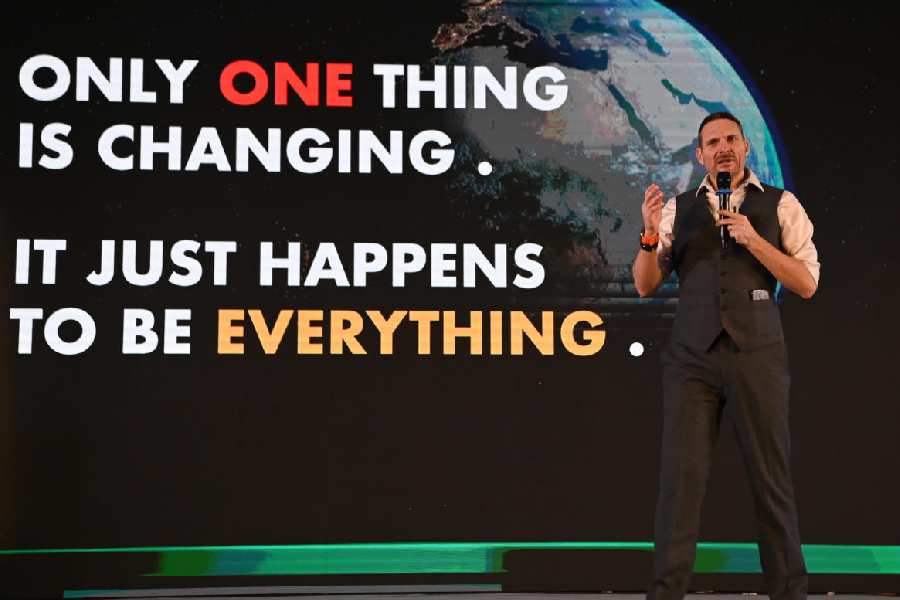When Apple CEO Tim Cook said in an interview with the Wired that the tech major’s biggest contribution in the future will be in healthcare, many were surprised.
But on Thursday, serial entrepreneur and futurist Matthew Griffin took this example at Infocom 2024, the flagship event of ABP, and said that large companies see disruption as an opportunity to generate revenue and create shareholder returns. Griffin suggested that corporates should allocate at least 2 per cent of their revenue to explore areas which they are not doing today.
For context, Cook had said, “It’s clear to me that if you zoom out way into the future, and you look back and ask what Apple’s biggest contribution was, it will be in the health area. That is what I really believe....
“We started with something simple (with Apple Watch), like monitoring your heart rate, and then figured out we could pick up heart signals to get to an EKG and an AFib determination. Now we are monitoring sleep apnea,” Cook had said.
“When you look at disruption as an opportunity rather than a threat the upsides - revenue, share prices, shareholder returns are staggering,” Griffin, who is the CEO and founder of 311 Institute, said.
“In 10-20 years of time Apple does not want to be known as a smartphone manufacturer. They want to be known as a healthcare company. It’s a massive market. It’s a new vision,” Griffin said.
Vision is one of the three ingredients that Griffin said will lead to successful disruption, the other two being company culture and action. “There is a reason why company culture is called the corporate immune system. If you want to kill change, having a toxic culture is the fastest way to kill your company,” he said, adding that once the vision and culture is sorted out, the companies need to act.
He took the example where IBM was slow to react to the disruption in cloud computing and ceded the market to players like AWS and Google Cloud.
Disruption was the buzzword on day one of Infocom as several speakers stressed on the need to invest in technology while having a clear vision on the areas where they need to innovate.
Bhaskar Pramanik, former board member SBI and ex-chairman Microsoft India while highlighting how technology is acting as a key disruptor also said that companies should have clear business goals on how they want technology to disrupt their business.
“One of the lessons I have learnt in life, especially working for a company called Sun Microsystems, is that technology has the shelf life of a banana. Today, technology is about AI, Quantum Computing, and virtual reality. These technologies have come to the fore today, but twenty years from now there will be another term. We are already hearing about Artificial General Intelligence which is distinct from AI,” Pramanik said.
“While digital disruption is excellent, the problem is it is a like a hammer looking for a nail. If you cannot think of a business innovation or the impact that you want to have, just applying technology for technology’s sake is a challenge,” he added. Pramanik also had a fireside chat with Anil Valluri, chairman, Palo Alto Networks India.
Citing some of the uses cases where AI disruption, Richard Whittington, global head-media, sports and telecommunications, SAP, said that AI is being used to analyse data and recommend to soccer teams which player is best suited to play at which location and also helping match the right candidate for the right job.
Biswajit Das, head-data and AI at AWS India and Saarc said that AI models are evolving at a rapid pace and companies should be flexible to work on the new models.
Avinash Joshi, CEO NTT Data India said that technology based disruption has already reached the boardroom discussions CEOs and CFOs are already asking about return on investment from digita
Highlighting the “Sustainable Disruption” theme of Infocom 2024, Dhruba Mukherjee, CEO ABP group said, “We have seen in the history of the corporate world so many companies going off the cliff because they were not able to sustainably manage the disruption they were facing”.











